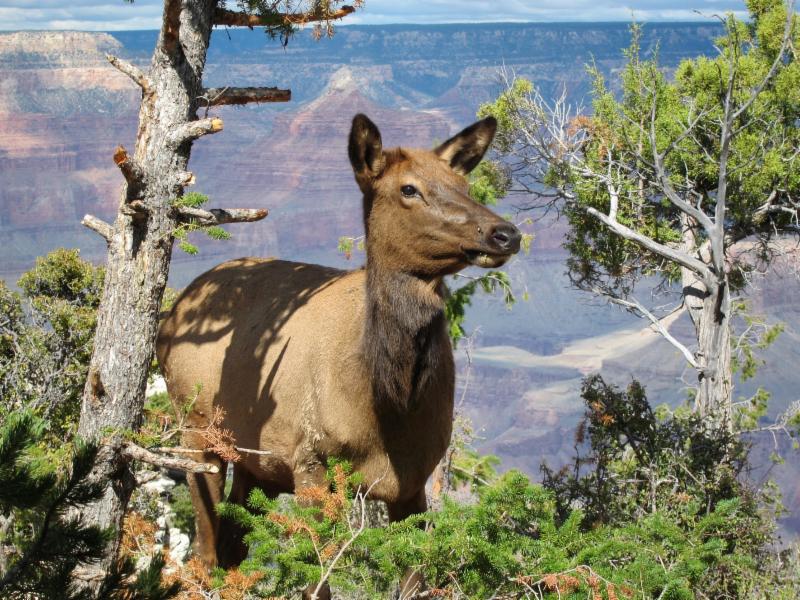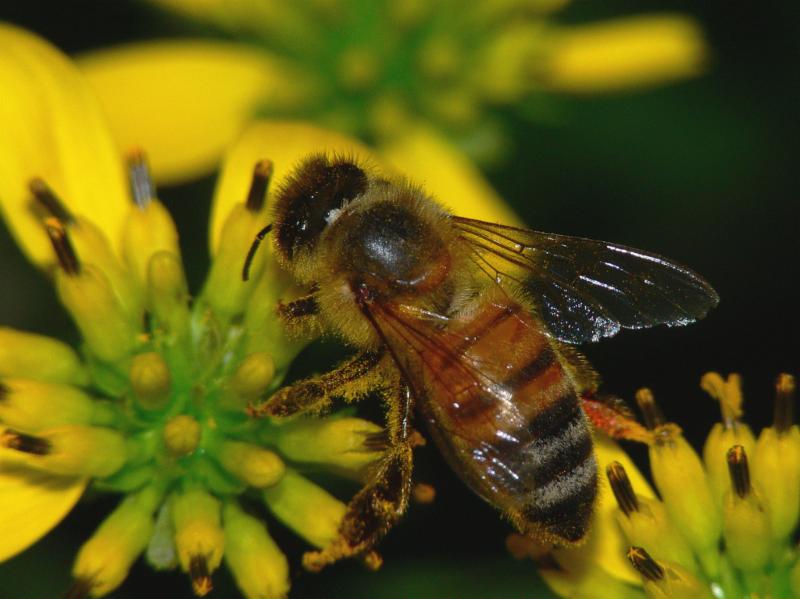McGraw's New Organic Garden
Creates a True Farm to Table Experience
McGraw photo by Kyla Duewel
Later this year, McGraw will give "Farm to Table" a whole new meaning. Sometime this summer, members and guests enjoying meals in Pond Cottage will taste vegetables, fruit and herbs grown on-site in a state-of-the-art organic garden and aquaponics facility.
McGraw has long offered lettuce and other greens grown in our pilot aquaponics program, but the new aquaponics greenhouse built next to the Fisheries Research Center has dramatically enhanced growing capacity. It's possible that more than 6,000 heads of lettuce will be grown there each year, while providing a laboratory for the propagation of gamefish such as walleye and smallmouth bass. (A story focusing on the aquaponics expansion will be published in an upcoming McGraw Report.)
But the ¼-acre garden taking root near the Shooting Sports Center on the west side of the Foundation's property is an entirely new endeavor.
|
|

An Old Cow Elk Is a Smart Cow Elk
By Steph Yin/The New York Times
Photo by Grand Canyon National Park/flickr
If
you come across an old elk in southwestern Canada, chances are it is female.
Though male elk, or bulls, rarely make it past 5 years old because they are targeted by hunters, female elk, or cows, can live as long as 20 years. Remarkably, cows over age 10 seem nearly invulnerable to hunters.
A team of scientists wanted to know: What makes senior cows so survival-savvy? Is it because these elk are more cautious by nature, which made them better at evading hunters all along? Or is it nurture, and cows can learn to dodge hunters over their lifetime, even if they start out more daring?
It seems both factors are at play, the researchers at the University of Alberta reported in
PLOS One
. Tracking dozens of female elk over several years, the authors found that, over all, careful cows were better at surviving. But they also found that individual cows were able to adjust their behavior and adopt more stealth strategies as they aged. In particular, as females got older, they moved shorter distances and sought safer ground if they faced a higher risk of encountering hunters.
|
In Antarctica, an Ice Melt Bigger Than Texas
By Chris Mooney/The Washington Post
Photo by Tak/flickr
Scientists have documented a recent, massive melt event on the surface of highly vulnerable West Antarctica that, they fear, could be a harbinger of future events as the planet continues to warm.
In the Antarctic summer of 2016, the surface of the Ross Ice Shelf, the largest floating ice platform on Earth, developed a sheet of meltwater that lasted for as long as 15 days in some places. The total area affected by melt was 300,000 square miles, or larger than the state of Texas, the scientists report.
That's bad news because surface melting could work hand in hand with an already documented trend of ocean-driven melting to compromise West Antarctica, which contains over 10 feet of
potential sea level rise
.
"It provides us with a possible glimpse of the future," said David Bromwich, an Antarctic expert at Ohio State University and one of the study's authors. The
paper
appeared in Nature Communications.
"You probably have read these analyses of West Antarctica, many people think it's slowly disintegrating right now, and it's mostly thought to be from the warm water eating away at the bottom of critical ice shelves," Bromwich continued. "Well, that's today. In the future, we could see action at the surface of these ice shelves as well from surface melting. So that makes them potentially much more unstable."
|

Scientists Trying to Save Bees from Poison Dust
By Dan Charles/NPR
Photo by Brad Smith/flickr
It's planting time in America. Farmers are spending long days on their tractors, pulling massive planters across millions of acres of farmland, dropping corn and soybean seeds into the ground.
Most of those seeds have been coated with pesticides known as neonicotinoids, or neonics for short. And despite
attempts
by pesticide makers to reduce this, some of that coating is getting rubbed off the seeds and blown into the air. That dust is settling on the ground, on ponds, and on vegetation nearby.
Honeybees and wild bees, looking for food, will encounter traces of the pesticides, and some will be harmed. They may become disoriented and bring less food back to their colony. Many may die.
Several years ago,
Christian Krupke
, an insect specialist at Purdue University in Indiana, became one of the first researchers to discover that rogue dust was wiping out bee colonies. At first,
Art Schaafsma
, an entomologist at the University of Guelph, in Canada, didn't believe it was true.
"Unfortunately - myself included - in the early days there was a lot of skepticism," Schaafsma says. He regrets that reaction now.
|

Hawaii's Power Lines Are Wiping Out Seabirds
By Ashley Braun/Hakai
Photo by Glenn Halog/flickr
When a seabird zipping through Hawaii's night sky hits a power line, you can hear it.
"They make this Star Wars-esque laser sound, like tawong-wow-ow-ow," says ornithologist André Raine, mimicking the noise playfully before turning more serious. "When you know what it is, it's unpleasant."
The birds aren't being electrocuted-they're too small to close the circuit between neighboring lines-but they are being hurt, and potentially killed, by the collision, which makes a distinct sound. Raine and his colleagues at the Kaua'i Endangered Seabird Recovery Project have recording devices dotted about the island to capture the sound.
Measuring the sound gives the scientists an idea of the scale of the problem-and how to fix it. This is particularly important for Newell's shearwaters and Hawai'ian petrels, endangered seabirds found only in Hawai'i. In the recent past, the birds were so abundant their flocks darkened the sky. But between 1993 and 2013, the Hawai'ian petrel population dropped by 78 percent and
Newell's shearwaters declined by 94 percent
, says Raine. "The birds are doing really badly, and power line collisions and light attraction are certainly some of the key threats."
|
|
|
|
|
|